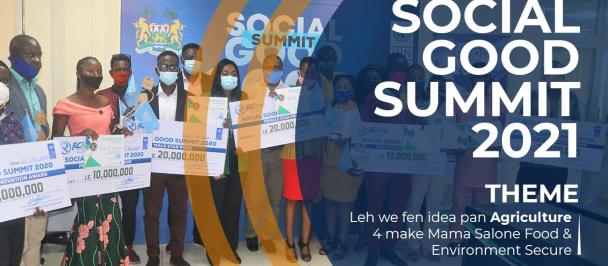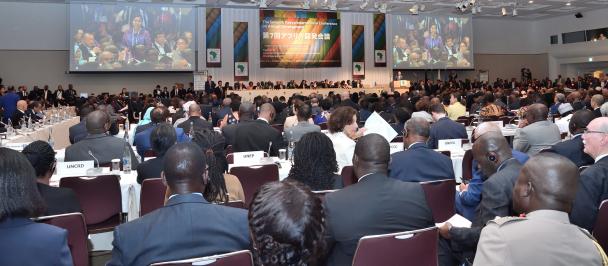Building the Adaptive Capacity of Water Supply Services to Climate Change in Sierra Leone
What is the project about?
Sustainable water supplies remain a major challenge to development in Sierra Leone. Climate-related challenges place significant constraints to sustainable water supplies, both in the capital Freetown as well as in rural districts. Although sufficient water becomes available during the rainy season, water shortages are frequent during the dry season. Furthermore, water sources are tapped unsustainably for domestic and industrial purposes, and water infrastructure developments are planned without taking climate change impacts into account.
In support of the Government of Sierra Leone, a country-led intervention was designed that focuses on building adaptive capacity to catalyze active public and private sector participation to manage the exposure and sensitivity of water supply services to climate change (Water and Climate Change Project).
The project aims to enhance capacity for climate resilient decision-making in the water sector through policy reforms, technical capacity development activities, and by igniting informed public and private sector dialogues. Water supply infrastructure in Freetown and drought-sensitive districts including Puhejun, Kambia and Kono will be made resilient against climate change induced risks focuses on pioneering innovations that address dry season water supply problems, which are likely worsened by anticipated climate change impacts.
Accomplishment so far
COMPONENT 1: Integrating climate change considerations into water policies
OUTCOME 1: Critical public policies governing the management of water resources revised to incentivize climate smart investment by the private sector
Output 1.a: More than 50 officers from the Ministry of Water Resources, esp. the Water Policy Planning Coordinating Unit (WPPCU), the Sierra Leone Environmental Protection Agency (EPA) and Districts leaders provided with relevant climate risks management guidelines/tools and trained on how the results of the climate risk/vulnerability assessments should be used to adjust regulations and policies governing the water sector at national (NWSP, RWSS) and local level (Districts development plans)
Output 1.b: Climate change resilience plan and emergency contingency plan for the Guma Reservoir
Output 1.c: Regular dialogues established between parliamentarians, local council members, traditional authorities, NGOs/CBOs, and private sector (WASH committees) on the impacts of climate change on water supply in Puhejun, Kambia and Kono districts
Output 1.d: At least two dialogues under the Sierra Leone Business Forum and WASH Donors Investment Platform initiated on managing climate change risks on water provision and usage
Output 1.e: Relevant experiences/lessons from community oriented climate resilient water infrastructure and management practices (including gender differentiated issues) identified, and widely shared/disseminated to facilitate replication in other vulnerable areas
COMPONENT 2: Strengthening the resilience of water supply systems to anticipated climate change risks
OUTCOME 2: Water supply infrastructure in Freetown and Puhejun, Kambia and Kono districts made resilient against climate change induced risks
Output 2.a: Pilot demonstrations of innovative climate resilient rainwater collection in at least 3 public building with reservoirs established to support the bottleneck of drink water supply in the dry season
Output 2.b: Spring water improvement designed, tested and demonstrated in high density area in Freetown (benefiting at least 200 households)
Output 2.c: Sustainable community reservoirs with 9 stand alone roof-top rainwater harvesting systems (in 3 hospitals and 6 schools), as well as 5 resilient gravity fed water distribution systems designed and pioneered in Kono, Kambia and Pujehun
Output 2.d: At least 100 households provided with water storage and treatment systems for drinking water usage in times of prolonged dry-spells and drought in Kono, Kambia and Pujehun

 Locations
Locations
